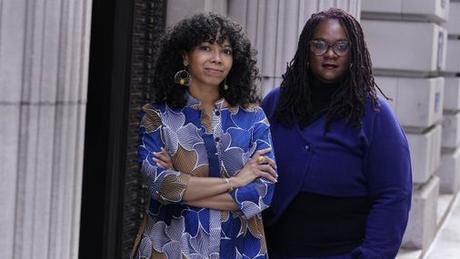
I'm just not sure I would say if it wasn't for black people there wouldn't be any democracy at all," Chris Wallace asserted in a recent chat with the Pulitzer Prize-winning journalist. Nikole Hannah-Jones on the now-former CNN+.
The exchange said it all, crystallizing why The Emancipator needs to exist. Wallace, an affable white man who thrived, unchallenged by his version of America - a mythology - highlights why the public needs an alternative to the fossilized ideas amplified by mainstream news media. Unknowingly, Wallace glossed over the abolitionist era and the mid-century civil rights movement, which propelled America toward a truer version of itself, just as our founders intended. Today, we're launching a digital publication commented on the Black experience as we reimagine the nation's first abolitionist newspapers and reframe the conversation about ending racism.
Just as 19th century abolitionist publications called for an end to black slavery, The Emancipator will amplify big ideas and solutions to achieve a racially just society. As we center the roots of anti-darkness, we will explore the intersections that entangle us all, regardless of ability, race, class, religion, or other ways of being. The insights shared will reveal how systems are created for some to win and others to lose, and what we can do about it.
To liberate oneself
We believe that historical context is often missing from everyday media coverage. As seasoned journalists, we fed the media machine that often doesn't give enough slack for deeper digging. We end up with surface coverage following the same tropes, pandering to the attention and needs of established power at the expense of underserved communities who need information and analysis - to live. Given the difficulty with which the media struggled to accurately label the January 6 uprising, why does the media have such a hard time with the label "racist"? The division now gripping the country proves that we have yet to think about what our next steps will be: the path of the emancipator is about leveraging intelligent and incisive commentary from a range of voices that prioritize the humanity and justice above all.
This troubling tete-a-tete between Wallace and Hannah-Jones, a black woman and member of our advisory board, is actually eye-opening for our mission. Matching her mind-to-mind energy, Hannah-Jones said, "You can't call yourself the greatest democracy and the greatest democratizing force in the country while violently and brutally suppressing democracy at home. And that's what happened to millions of Americans.
Watching this revealed a uniquely American tendency to disassemble, taking the harm that racism causes to prioritize the comfort of the very people implicated by the racist systems and social norms that keep this toxic, fundamental force alive. Wallace suggested that keeping intact a heroic myth of returning World War II soldiers was more important than highlighting the dangers of racism that lingered in the country after the war. But this way of comforting leaves out much of the truth of the American experience, and that's why the media conversation needs a shift.
What we know for certain: The 2020 police killing of George Floyd, sparking the biggest US social justice protest ever, and the revelations (for some) of the racial disparities of the coronavirus pandemic , urged more people to reconsider. While there are those who aim to destroy our country through actions like storming the United States Capitol to overthrow an honest and fair presidential election; decrease in voting rights; and oppressing the LBGTQ community, many more people across a range of differences want to know more, do more, and be better at the freedom project that is America.
The abolitionist movement was a multiracial movement whose greatest voices include: William Lloyd Garrison, a white man who published the anti-slavery newspaper, The Liberator, in our hometown of Boston; Frederick Douglass, a liberated black man who founded The North Star; and Maria Stewart, the black woman abolitionist and women's rights advocate who informs our first "We Can Solve the Racial Wealth Gap" series. Let's not forget Elihu Embree, a white abolitionist from Tennessee who founded the first Emancipator in 1820. By exploring the historical outline, we all have the opportunity to be informed by their ideas, energy and values.
Now we use black liberation as an entry point into fundamental ideas about freedom and democracy. Our role in contributing to the solution is to center deeply grounded, research-driven, and community-informed ideas to explore ways to stop racism from continuing to hurt. And we mean everyone, whether you are Asian, Brown, White, Native or Black. Our country is polarized by a perilous lack of context and depth that threatens the gains we have made to create an inclusive society. If we look at the continuum of progress, as well as the setbacks, we are encouraged that the challenges we face represent a moment in time. We have a chance to accelerate a paradigm shift by building a newsroom that ties racial justice to democracy as our priorities.
When the nation is pressured to live up to its ideals by reaching out to those underserved and abused by social policy, laws and norms, history shows that everyone benefits. As co-editors of The Emancipator, we stand in the service of emancipation - disinformation, ideological ignorance, oppression, servitude, extremism and hatred.
It is the time of emancipation. Let's go.
Co-Editors, The Emancipator

